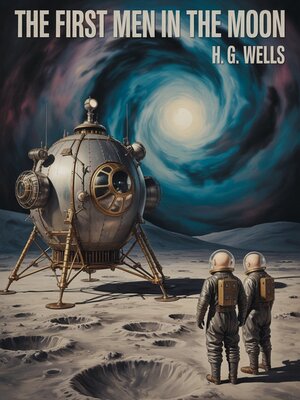
Sign up to save your library
With an OverDrive account, you can save your favorite libraries for at-a-glance information about availability. Find out more about OverDrive accounts.
Find this title in Libby, the library reading app by OverDrive.



Search for a digital library with this title
Title found at these libraries:
| Library Name | Distance |
|---|---|
| Loading... |
- This edition is unique;
- The translation is completely original and was carried out for the Ale. Mar. SAS;
- All rights reserved.
The First Men in the Moon is a book by H. G. Wells, first published in 1901. This early science fiction novel follows the journey of two unlikely companions—an eccentric scientist named Mr. Cavor and the pragmatic businessman Bedford—as they travel to the Moon using a revolutionary anti-gravity substance called Cavorite. Once there, they discover a complex subterranean civilization of insect-like beings known as Selenites, revealing a lunar world both alien and eerily reflective of human society. Wells's novel was a bold imaginative leap for its time, offering readers a speculative look at space travel decades before it became scientifically plausible. It reflects the anxieties and ambitions of the early 20th century, including concerns about imperialism, industrialization, and the limits of human understanding. The book also contributed to shaping the genre of science fiction, influencing countless later works exploring extraterrestrial life, the ethics of exploration, and the clash of civilizations.
- The translation is completely original and was carried out for the Ale. Mar. SAS;
- All rights reserved.
The First Men in the Moon is a book by H. G. Wells, first published in 1901. This early science fiction novel follows the journey of two unlikely companions—an eccentric scientist named Mr. Cavor and the pragmatic businessman Bedford—as they travel to the Moon using a revolutionary anti-gravity substance called Cavorite. Once there, they discover a complex subterranean civilization of insect-like beings known as Selenites, revealing a lunar world both alien and eerily reflective of human society. Wells's novel was a bold imaginative leap for its time, offering readers a speculative look at space travel decades before it became scientifically plausible. It reflects the anxieties and ambitions of the early 20th century, including concerns about imperialism, industrialization, and the limits of human understanding. The book also contributed to shaping the genre of science fiction, influencing countless later works exploring extraterrestrial life, the ethics of exploration, and the clash of civilizations.







